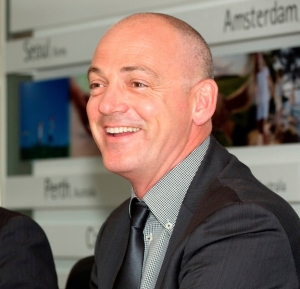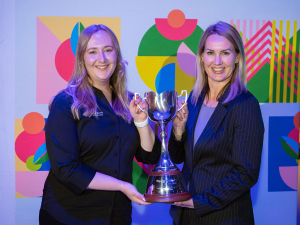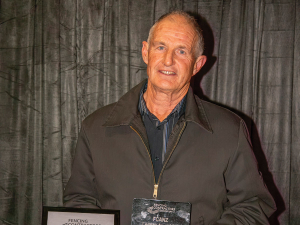Launched 12 weeks ago, the internal food safety and quality hotline number has been given to the co-op’s global staff, says chief executive Theo Spierings. Staff can air their concerns directly with the group director food safety and quality, a newly created position reporting to Spierings.
He told the World Dairy Summit, in Yokohama, Japan last week, that Fonterra has copied its existing whistleblowing model for food safety after an operational review of the WPC80 scare.
“It showed that when people have concerns about food safety they don’t have sufficient access to higher levels,” he says. “So we really copied our model of whistleblowing and there should be open lines for all our staff around the world to take concerns directly to the top.”
Spierings later told Rural News that Ian Palliser has been acting in the new position and a substantive appointment will be made soon.
Asked if such a whistleblowing model-type policy could have prevented the WPC80 incident, Spierings said it’s hard to say.
“If someone at Hautapu had raised concerns about production procedures, we would have intervened. This
never happened.”
Spierings, on his first visit to a World Dairy Summit, organised annually by the International Dairy Federation, devoted the first part of his speech to the WPC80 scare. He showed the 2000 delegates the near-capsize photo of Emirates Team New Zealand’s boat. “If it had crashed, it would have been game over for Team NZ; the same nearly happened to Fonterra on August 1,” he says.
Spierings recalled that he was in Europe on August 1 when he got a call. “My people in New Zealand said we have an issue – botulism. I said that’s almost impossible. I know from 30 years in dairy that it’s almost impossible to find botulism. But the report really said it was botulism, it produces toxins and mice are dying – that was the message.”
Getting a second opinion would have taken a month, he adds. “And if one child or one consumer was affected during that time, that for me personally is unforgiveable but for the business we would have had to close the shop.”
Spierings says the product recall was the right decision but admits some things could have been handled better. “You always learn from such events.”
* Dairy News Editor Sudesh Kissun travelled to the World Dairy Summit in Yokohama with assistance from Asia NZ Foundation.
– More pages 6-7

















